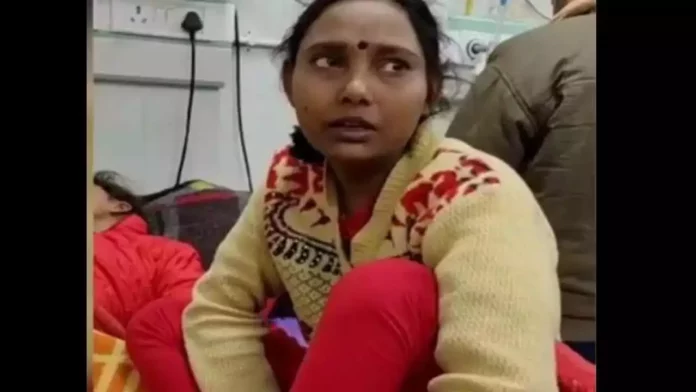MI Khan, TwoCircles.net
Patna: There appears to be no hope for justice for Sunita Devi, a Dalit woman from Bihar’s Muzaffarpur district, who allegedly had both kidneys removed at a private clinic nearly two years ago. Disappointed by the lack of support, she is now turning to Prime Minister Narendra Modi for help to undergo a kidney transplant and survive.
“Modiji is my last hope to live for my three minor children. My health is deteriorating day by day. I appeal to him with folded hands to ensure justice for me during his third term as PM,” said Sunita from her hospital bed at Sri Krishna Medical College and Hospital in Muzaffarpur, a place known for its litchi, situated about 70 km from Patna, the capital city of Bihar.
Despite repeated pleas from Sunita and her family for a kidney transplant, neither the Bihar government nor the top health authorities have arranged a donor for her surgery to date.
Sunita, in her mid-30s, has been fighting for her life since her kidneys were mistakenly removed during a supposed uterus removal operation in September 2022 at a private clinic. Doctors at SKMCH have emphasized that Sunita urgently needs a kidney transplant to survive.
“I could live longer if Modi ji arranges for my kidney transplant. I am struggling to survive, and if nothing happens, I fear leaving my children destitute,” said the patient, who undergoes regular dialysis.
Sunita’s mother, Tetri Devi, emphasized that her daughter’s life rests in the hands of Prime Minister Modi. “A kidney transplant is not a big ask for Modi ji if he intervenes. My daughter has been waiting tirelessly for over 20 months for a transplant. We only receive assurances, and our hope is fading,” said the poor mother, who has been a strong support for Sunita and her children.
Tetri expressed frustration with hospital doctors and health officials who repeatedly promise to arrange a kidney donor but have yet to deliver. “We are tired now. Every time we ask about the kidney transplant, they give us the same excuses. Health officials are neglecting our plea because we are poor and cannot afford a donor,” she added.
Tetri recalled how health officials had assured her of arranging a kidney transplant for Sunita, but to date, nothing has materialized.
Earlier, she blamed the health department officials for their lack of seriousness, which she believes caused the delay in the transplant. She criticized the authorities for not making sufficient efforts during the 19-month period to secure a donor that could save her daughter’s life.
Doctors and officials at SKMCH expressed their inability to facilitate a kidney donor for Sunita. They clarified that their responsibility lies in providing proper treatment, monitoring her health regularly and ensuring she receives dialysis as needed. They emphasized that arranging a donor is the responsibility of government health authorities.
While there is little hope left for Sunita’s kidney transplant, a local court in Muzaffarpur has convicted Dr. Pawan Kumar, the owner of Subhakant Clinic in Sakra block where her healthy kidneys were removed.
Kumar, who claimed to be a medical practitioner, was arrested in November 2022 and is currently in jail. The court is expected to announce his sentence on June 19.
Ironically, the main accused in the kidney removal case, Dr. RK Singh, remains absconding, and the police have been unsuccessful in apprehending him. Following a court order, the police have seized his property due to his fugitive status.
According to police reports, Kumar and Singh conducted surgery on Sunita, removing her kidneys at an unauthorized clinic that lacked proper registration and a valid license to perform surgeries. The investigation uncovered shocking details, revealing that the clinic operated without an operation theater.
Days after the illegal surgery, an FIR was filed at the local police station based on Tetri’s statement. The FIR named Kumar, his wife Sangeeta Devi, Singh, OT assistant Jitendra Kumar Paswan and two others as accused in the case.
They were charged under the Transplantation of Human Organs and Tissues Act, 1994, as well as the Scheduled Castes and Scheduled Tribes (Prevention of Atrocities) Act, 1989.
An initial investigation by the police in Muzaffarpur revealed that Subhakant Clinic, where Sunita underwent surgery, lacked basic facilities such as an operation theater and proper government approval. The clinic operated without a registration number and there were no displayed degrees of its doctors, leading to allegations that it was managed by self-proclaimed medical practitioners.
Sunita’s family recounted that she was taken to the clinic in early September due to stomach pain. Following an ultrasound, doctors advised immediate admission for a uterus removal surgery, demanding payment upfront.
However, shortly after the procedure, Sunita’s health rapidly declined. Her body swelled, and she experienced extreme weakness and discomfort. Concerned about her deteriorating condition, clinic staff suggested transferring her to Patna for better treatment.
Upon arrival at the government-run Patna Medical College and Hospital (PMCH), doctors delivered a shocking diagnosis: both of Sunita’s kidneys had been removed during the surgery at the clinic.
Following widespread attention to the case, the National Human Rights Commission and Bihar State Human Rights Commission issued notices to the state government.
Sunita’s case highlights the dire state of healthcare in rural Bihar, where unlicensed practitioners or quacks, locally known as “jhola chaap”, operate numerous private clinics. Many vulnerable individuals, like Sunita, fall victim to such practices, often without public awareness or reporting.
In a similar incident in 2021, 16 elderly men and women had their eyes removed due to alleged negligence during cataract surgeries at a private hospital in Muzaffarpur.

